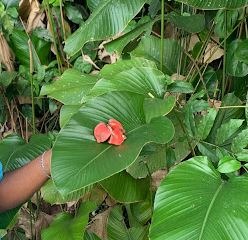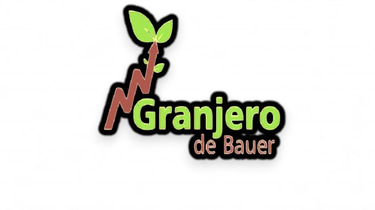Comparing the Economic Advantage of Sweeteners in Nigeria and the Global Market: Honey, Stevia, Thaumatin, and Regular Sugar
Comparing Different Sweeteners and their potential economic benefits.
9/3/20245 min lire


As the world continues to focus on healthier lifestyles, the demand for natural sweeteners has skyrocketed. While regular sugar remains the most widely consumed sweetener globally, alternatives like honey, stevia, and thaumatin are gaining traction due to their health benefits and lower caloric content. Each of these sweeteners has its economic advantages, both globally and within Nigeria, where diverse agricultural conditions can support their production.
In this article, we will compare the economic potential and advantages of honey, stevia, thaumatin, and regular sugar, particularly in the context of Nigeria’s agriculture and economy
1. Honey: The Liquid Gold
Honey, produced by bees from the nectar of flowers, has been a staple sweetener for thousands of years. Its appeal lies in its natural composition, rich flavor, and health benefits, making it a premium product in global markets.
Economic Advantages Globally:
- High Demand: Global demand for honey continues to rise, especially for organic and raw honey varieties. In 2022, the global honey market was valued at over $9 billion, with strong demand in Europe and North America.
- Premium Pricing: Honey fetches a premium price compared to regular sugar. Depending on the variety and quality, it can sell for $5 to $10 per kilogram in international markets.
- Health Benefits: Consumers prefer honey due to its natural antioxidants, enzymes, and antibacterial properties, which boost its market appeal.
Economic Potential in Nigeria:
- Favorable Climate: Nigeria's diverse ecology, from savannah to rainforests, supports various floral sources for honey production. This allows the production of unique honey varieties such as Savannah honey and forest honey.
- Job Creation: Beekeeping requires minimal investment and can create employment for rural farmers. It has the potential to improve livelihoods in regions where other agricultural activities are less viable.
- Export Potential: With growing global demand, Nigerian honey, if marketed well and certified organic, could penetrate premium markets. Nigerian honey production is valued at about 10,000 tonnes annually, with room for expansion.
Challenges:
- Quality Control: Unregulated honey production can lead to adulteration, affecting marketability.
- Limited Infrastructure: Access to modern beekeeping tools and techniques is limited, reducing efficiency and productivity.
2. Stevia: The Calorie-Free Natural Sweetener
Stevia, derived from the leaves of the Stevia rebaudiana plant, is gaining popularity as a zero-calorie sweetener that is up to 300 times sweeter than sugar. Its natural, plant-based origin and diabetic-friendly properties have made it a popular sugar substitute globally.
Economic Advantages Globally:
- Growing Market: The global stevia market was valued at over $700 million in 2021, with projected growth due to the increasing demand for low-calorie natural sweeteners.
- Food Industry Applications: Stevia is used in beverages, snacks, and various processed foods, providing a healthier alternative to sugar.
- Health Trend: With rising health consciousness, stevia has found its way into mainstream products like Coca-Cola Life and Pepsi True, driving up demand.
Economic Potential in Nigeria:
- Ideal Growing Conditions: Nigeria’s tropical and subtropical climates are suitable for stevia cultivation. Regions in Northern Nigeria and parts of the Southwest could support large-scale stevia farming.
- Export Market: As health-conscious consumers demand more natural sweeteners globally, Nigeria could become a significant exporter of stevia, especially to markets in Europe and the U.S.
- Job Creation and Value Addition: Stevia cultivation could provide jobs in both farming and processing. Additionally, producing stevia-based products locally would add value to Nigeria’s agricultural exports.
Challenges:
- Lack of Awareness: Stevia cultivation is relatively new in Nigeria, and there is limited awareness among farmers and consumers.
- High Initial Investment: Stevia requires specialized farming and processing techniques, which may be costly for small-scale farmers to adopt without proper support.
3. Ewe Moi- Moi seeds Thaumatin: The Miracle Sweetener from West Africa
Thaumatin is a natural sweetener and flavor modifier extracted from the fruit of the katemfe plant Thaumatococcus daniellii, native to West Africa. It is nearly 2,000 to 3,000 times sweeter than sugar but contains virtually no calories. Thaumatin is used not just as a sweetener but also as a flavor enhancer in various food products.
Economic Advantages Globally:
- Niche Market: Thaumatin’s primary market lies in the high-end food and beverage industry, where it is used as a sweetener and flavor enhancer in products like chewing gum, toothpaste, and pharmaceutical syrups.
- High Value: Due to its potency and rarity, thaumatin commands a much higher price compared to regular sweeteners, making it a valuable export commodity.
- Demand for Natural Sweeteners: As artificial sweeteners fall out of favor, natural alternatives like thaumatin are increasingly being incorporated into global food
Economic Potential in Nigeria:
- Native to Nigeria: The katemfe plant grows naturally in the tropical forests of Nigeria, particularly in states like Ondo and Cross River. This gives Nigeria a competitive advantage in producing and exporting thaumatin.
- Export Revenue: With appropriate investment, Nigeria could dominate the global thaumatin market, exporting to pharmaceutical and food companies worldwide. Thaumatin already has a presence in Europe and Asia, where it is valued for its unique properties.
- Rural Employment: Growing, harvesting, and processing the katemfe plant for thaumatin could provide employment for rural communities, contributing to poverty alleviation.
Challenges:
- Limited Commercialization: Despite being native to the region, commercial cultivation of katemfe for thaumatin extraction remains underdeveloped.
- Processing Infrastructure: Extracting thaumatin requires specialized technology, which could be a barrier to large-scale production without investment in processing facilities.
4. Regular Sugar: The Ubiquitous Sweetener
Regular sugar, derived from sugarcane or sugar beets, remains the dominant sweetener globally. Despite growing health concerns, sugar is still the most consumed sweetener due to its affordability and widespread use in processed foods, beverages, and cooking.
Economic Advantages Globally:
- Massive Production and Demand: The global sugar market was valued at over $56 billion in 2022. Sugarcane production is a significant economic activity in countries like Brazil, India, and Thailand, which dominate global exports.
- Versatile Use: Sugar is used not only as a sweetener but also as a preservative, texture enhancer, and fermentation agent in industries ranging from food to pharmaceuticals and biofuels.
Economic Potential in Nigeria:
- Sugarcane Production: Nigeria produces a substantial amount of sugarcane, particularly in Kwara, Niger, and Kogi states. The country’s sugar industry employs thousands of people and supports rural economies.
- Import Substitution: Nigeria imports a significant amount of refined sugar, but increased investment in local sugar processing could reduce import dependence and save foreign exchange.
- Domestic Demand: Nigeria’s large population ensures a high demand for sugar, both for direct consumption and industrial use.
Challenges:
- Health Concerns: Growing concerns about the health effects of excessive sugar consumption (diabetes, obesity) have led to a shift toward natural sweeteners, which could reduce long-term demand for sugar.
- Low Profit Margins: Sugar production often has lower profit margins compared to premium alternatives like honey, stevia, or thaumatin.
A Sweet Economic Opportunity for Nigeria in view
The comparison of these sweeteners highlights a range of economic opportunities for Nigeria, particularly in honey, stevia, and thaumatin production. While regular sugar remains a staple, the global shift toward healthier and natural alternatives offers Nigeria a chance to diversify its agricultural exports.
- Honey production is already established and could be scaled up with improved quality control and marketing.
- Stevia cultivation, though relatively new, holds great promise given the growing demand for low-calorie sweeteners globally.
- Thaumatin, a native sweetener, represents an underexplored but potentially lucrative niche market.
By investing in the cultivation, processing, and export of these alternative sweeteners, Nigeria could create jobs, generate export revenue, and position itself as a key player in the global sweetener industry.
